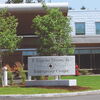Processing Your Payment
Please do not leave this page until complete. This can take a few moments.
- News
-
Editions
-
- Lists
-
Viewpoints
-
Our Events
-
Event Info
- Women's Leadership Forum 2025
- On the Road with Mainebiz in Bethel
- Health Care Forum 2025
- On The Road with Mainebiz in Greenville
- On The Road with Mainebiz in Waterville
- Small Business Forum 2025
- Outstanding Women in Business Reception 2025
- On The Road with Mainebiz in Bath
- 60 Ideas in 60 Minutes Portland 2025
- 40 Under 40 Awards Reception 2025
- On The Road with Mainebiz in Lewiston / Auburn
- 60 Ideas in 60 Minutes Bangor 2025
Award Honorees
- 2025 Business Leaders of the Year
- 2024 Women to Watch Honorees
- 2024 Business Leaders of the Year
- 2023 NextUp: 40 Under 40 Honorees
- 2023 Women to Watch Honorees
- 2023 Business Leaders of the Year
- 2022 NextUp: 40 Under 40 Honorees
- 2022 Women to Watch Honorees
- 2022 Business Leaders of the Year
-
-
Calendar
-
Biz Marketplace
- News
- Editions
- Lists
- Viewpoints
-
Our Events
Event Info
- View all Events
- Women's Leadership Forum 2025
- On the Road with Mainebiz in Bethel
- Health Care Forum 2025
- On The Road with Mainebiz in Greenville
- On The Road with Mainebiz in Waterville
- + More
Award Honorees
- 2025 Business Leaders of the Year
- 2024 Women to Watch Honorees
- 2024 Business Leaders of the Year
- 2023 NextUp: 40 Under 40 Honorees
- 2023 Women to Watch Honorees
- 2023 Business Leaders of the Year
- + More
- 2022 NextUp: 40 Under 40 Honorees
- 2022 Women to Watch Honorees
- 2022 Business Leaders of the Year
- Nomination Forms
- Calendar
- Biz Marketplace
Respiratory virus puts strain on Maine hospitals
 File photo
Some 37 staffed pediatric beds at Northern Light Eastern Maine Medical Center in Bangor were 97% full on Friday.
File photo
Some 37 staffed pediatric beds at Northern Light Eastern Maine Medical Center in Bangor were 97% full on Friday.
An unprecedented rise in respiratory syncytial virus among babies and toddlers in Maine is creating a significant strain on pediatric wards.
Experts from MaineHealth and Northern Light Health have asked the public to remain vigilant in protecting themselves against the respiratory illness.
RSV is a common respiratory virus that usually causes mild, cold-like symptoms; the virus usually spreads from person to person in droplets of coughs and sneezes and has no specific treatment beyond supportive care.
While most patients recover from RSV in a week or two, the condition can be serious to infants and older adults. It is also the most common cause of bronchiolitis (inflammation of the small airways in the lungs) and pneumonia (infection of the lungs) in babies younger than a year old in the United States, according to the U.S. Centers for Disease Control.
Cases being triaged
In Maine, all 87 staffed pediatric beds at the Barbara Bush Children's Hospital at Maine Medical Center in Portland were occupied on Friday, while other pediatric patients were being treated at the hospital's emergency department.
Meanwhile, at Northern Light Eastern Maine Medical Center in Bangor, 37 staffed pediatric beds were 97% full.
To cope with the strained capacity, the Barbara Bush Children's Hospital is considering postponing some non-emergency surgeries to increase available beds, while Northern Light has begun moving pediatric patients with non-respiratory conditions to its neonatal intensive care units. Additional measures will be considered as needed.
Representatives of both health care systems shared the news in a Friday news release and press conference.
"Our impatient capacity is really stretched right now," said Dr. Mary Ottolini, the George W. Hallett chair of pediatrics at Barbara Bush Children's Hospital. "We are fast approaching a tipping point where we won't be able to provide the level of care we know patients need.”
Along a similar note, Dr. Jonathan Wood of Northern Light Eastern Maine Medical Center said cases are being triaged "to get to our sickest, most acute patients first."
Officials noted that the nationwide shortage of health care workers at hospitals and post-acute care facilities, including nursing homes, has significantly limited the ability of both Maine health systems to boost capacity where there are surges of RSV and other respiratory illnesses.
Delayed care during the pandemic has also led to higher acuity in patients seeking care, causing them to occupy hospital beds for longer periods of time.
"We are still seeing many cases of COVID and increasing influenza," said Dora Mills, chief health improvement officer of MaineHealth and sister of Gov. Janet Mills. "As a result, our emergency departments are still extremely busy."
She added, "We can all do our part to protect those at highest risk such as infants and the elderly by counting the measures we were taking at the height of the COVID pandemic like masking and social distancing if you or a loved one are high-risk, and staying home when you're sick."














0 Comments